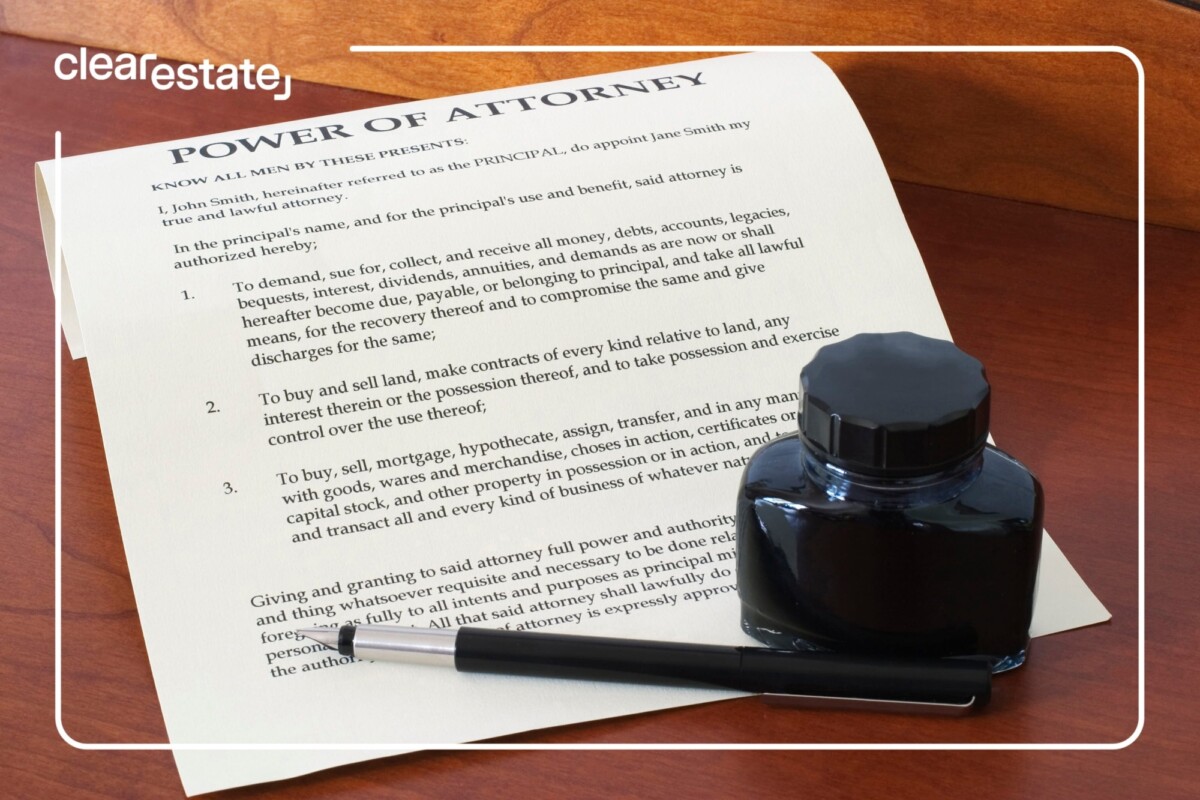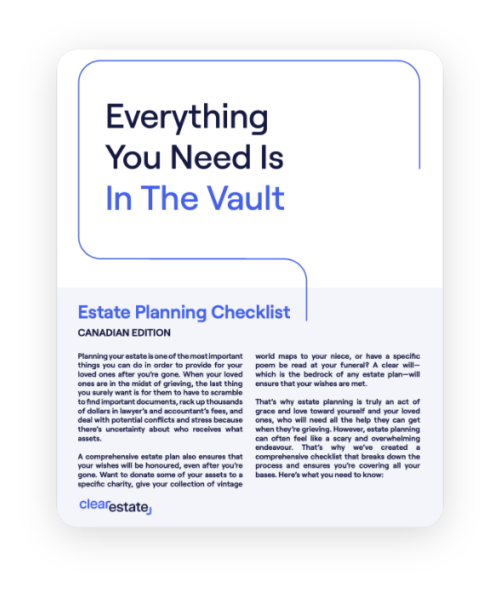Estate Planning
Nov 29, 2024
7 Critical Trust Fund Mistakes Parents Must Avoid in 2025
Setting up a trust fund? Learn the biggest mistake parents make and ensure your child's financial security with expert guidance.
A Power of Attorney can give you and your loved ones significant peace of mind and prepare you for anything, read on to find out more about POA's in Ontario.


Do you ever wonder what would happen if you were suddenly unable to make certain legal, financial, or healthcare decisions for yourself? We all like to think of ourselves as independent individuals who are capable of caring for ourselves, but life will often throw us a curveball.
Illnesses, an accident, or any other kind of event that leaves you unable to make sound decisions for yourself can happen, whether we like to think of it or not. And in those cases, you have to ensure that your financial and personal affairs are taken care of by giving someone you trust the authority to make those decisions on your behalf.
That’s where the Power of Attorney (POA) comes in. In addition to being a smart contingency plan in case the worst should happen, it’s also a powerful estate planning tool that can grant you and your loved ones significant peace of mind. Here’s what you need to know about POAs in Ontario.
What Is a Power of Attorney for Personal Care in Ontario?
What Is a Power of Attorney for Property in Ontario?
Why Would I Need a Power of Attorney?
When Should I Start Planning My Power of Attorney?
Do I Need a Lawyer to Make a Legal Power of Attorney in Ontario?
Does My Power of Attorney Need to Be Notarized?
A Power of Attorney is a legal document that gives someone the authority to act on your behalf, particularly when it comes to financial and health care matters. It allows the chosen person, who then becomes your designated “attorney” to manage your property, handle your financial affairs, and make decisions about what kind of health care you should be receiving. Keep in mind that although the individual chosen to represent your interests is known as an attorney during a valid POA, they are not your actual lawyer.
A Power of Attorney for personal care refers to creating a POA specifically for health care matters and other types of issues relating to your personal well-being, such as special housing or specific dietary requirements.
The duties of the POA for personal care in Ontario are to:
A POA for personal care tends to be someone you trust intimately, and who knows exactly what you’d want in any given situation where you’re no longer able to speak up for yourself. This is usually a spouse, a partner, an adult child, or a very close friend. You can also name two attorneys, so that one can step in to make decisions if the other one should, for whatever reason, no longer be able to.
It’s also worth pointing out that a POA for personal care only comes into effect if you are no longer mentally capable of making your own healthcare decisions.
A POA for property can deal with the sale, purchase, and management of all your financial assets, including real estate. Below are some of the responsibilities you can perform using power of attorney for your property in Ontario:
Unlike a POA for personal care, a POA for property kicks in immediately after they are signed and witnessed, unless otherwise stated.
A POA becomes important when you’re suddenly no longer in a state to make your own financial and healthcare decisions, either because you’re mentally or physically incapacitated or because you’re unable to for other reasons, such as being deployed abroad or being incarcerated.
You can use a POA to designate an attorney to be in charge of your estate. The attorney will be in charge of your property, money, and other personal affairs and represent your best interests in all legal and financial situations.
While of course you hope to never have to use a POA, making one in advance is just good preparation for any unforeseen events that may leave you unable to make decisions for yourself. Think of it as a type of insurance you hope to never have to use.
While most people start thinking of a POA when they’re elderly and perhaps already sick or diagnosed with a severe illness, it’s recommended that no one wait that long. You can create a POA the minute you turn 18. If you want to make a POA for personal care, you can even do so when you turn 16.
Creating a POA is definitely something to think about if your estate includes a lot of complicated legal and financial matters that require your active input, or if you have very specific wishes in terms of your healthcare and potential treatments. When planning a POA, you should always consult with the person you’ve chosen as your attorney, and ensure that they’re aware of your wishes and able to handle the responsibilities, should the time come.
You do not need a lawyer to create a legally binding POA in Ontario. The Ontario government even provides free online kits to create your own POA. However, in order to create a legally binding document, you do need to follow some requirements:
As you can see, the requirements to creating a legally binding POA in Ontario are pretty similar to creating a legally valid will. Of course, if your estate is quite complicated and you own property in various countries or run your own business, you may choose to consult a lawyer on what kind of language your POA should include to ensure your estate is protected.
In Ontario, your POA does not need to be notarized in order to be legally valid, as long as it fulfills all the requirements above.
While POAs for personal care only take effect when you’re no longer capable of making health care decisions for yourself, a POA for property can work in two ways, through the general power of attorney and the enduring power of attorney.
The general power of attorney takes effect immediately when it's given. As a result, this form is perfect for everyday tasks that need to be taken care of. For example, you could give your attorney permission to pay your bills or deal with your taxes. This type of POA is immediately invalid should you become mentally incapacitated.
The enduring or continuing power of attorney takes effect only when you can no longer make decisions. You can list specific instructions in this POA about what your agent can and can't do, and usually include decisions for managing investments, selling or buying property, and taking care of other assets in your estate.
Planning for your future and any worst case scenarios can be challenging. However, with the help of a professional, you can be sure to be on the right track. If you are looking for more information about POAs and how they might be able to help you and your family, contact us at ClearEstate for a free consultation.
 Secure Your Legacy
Secure Your Legacy
Get your free 12-step Estate Planning checklist now. 89% of readers complete their estate plan within 3 months of using our guide.
Instantly Access Now